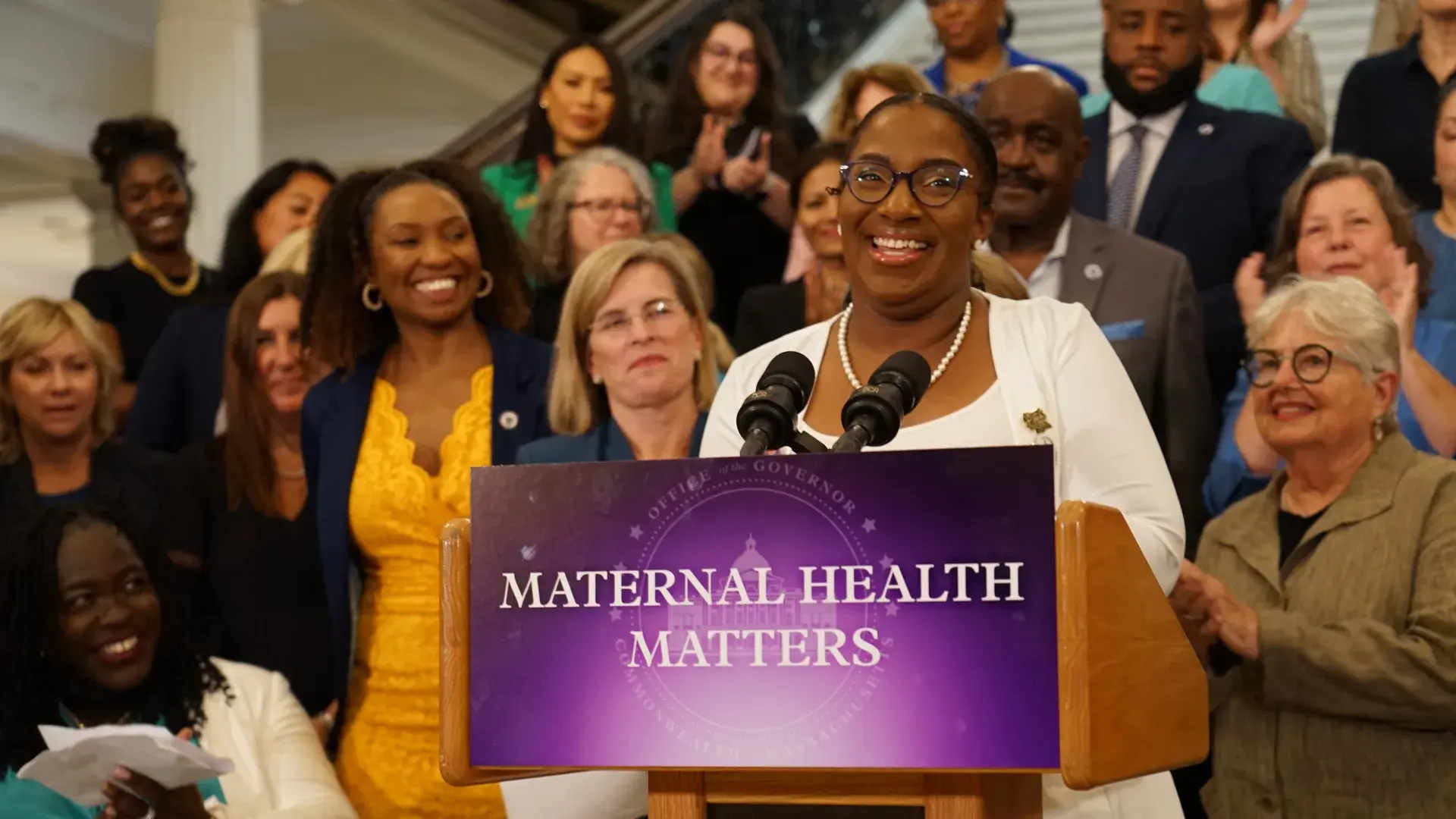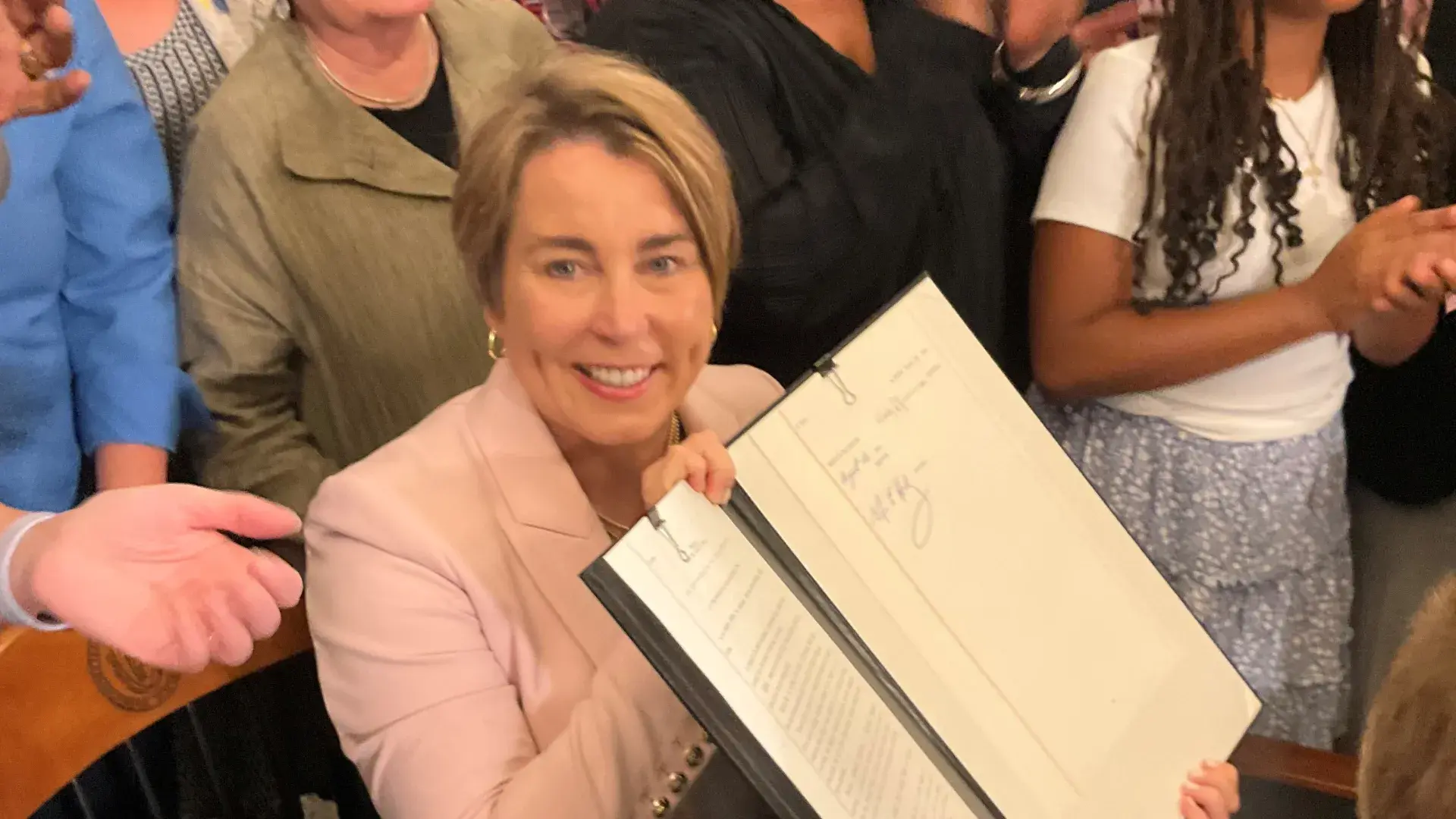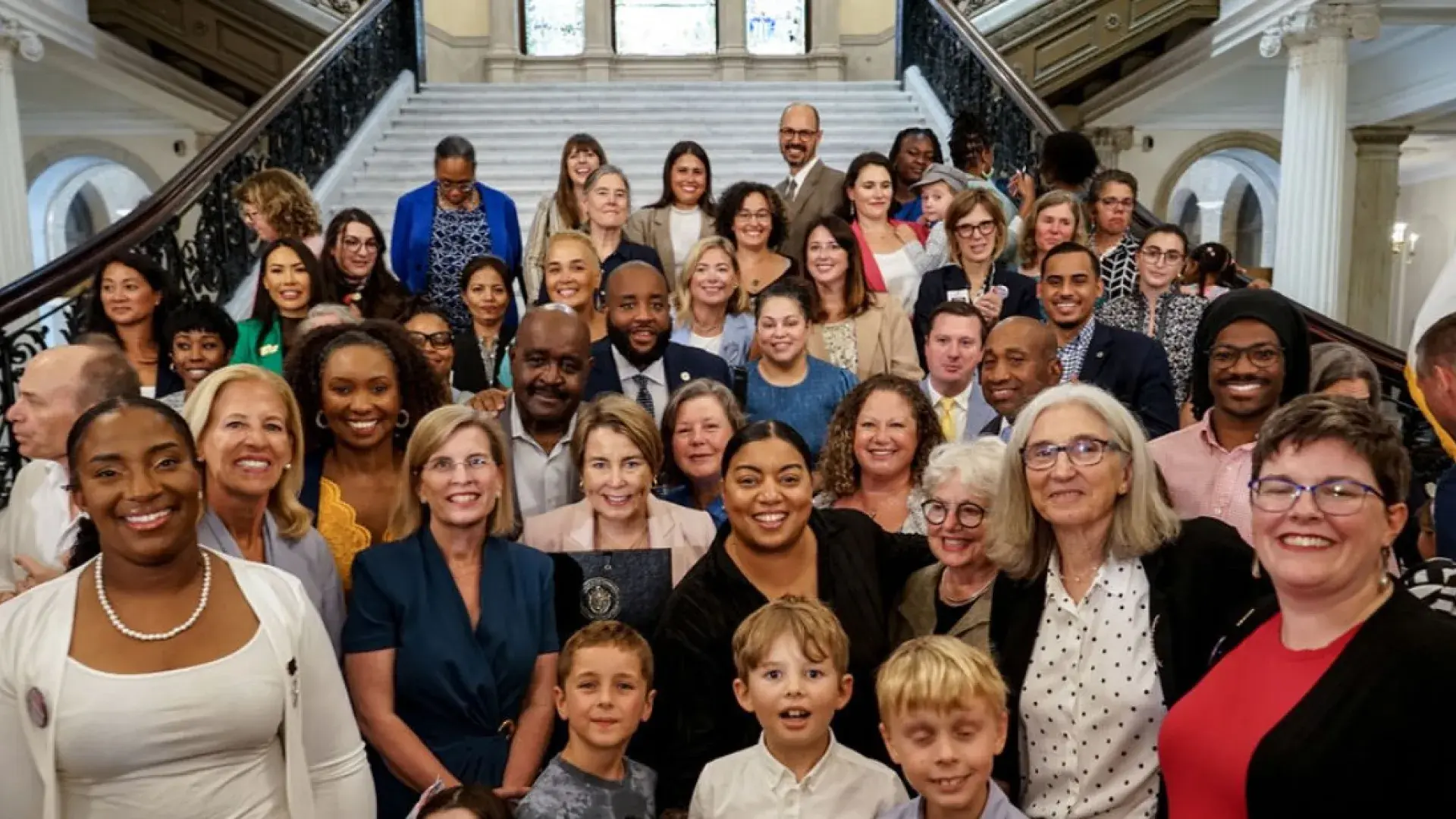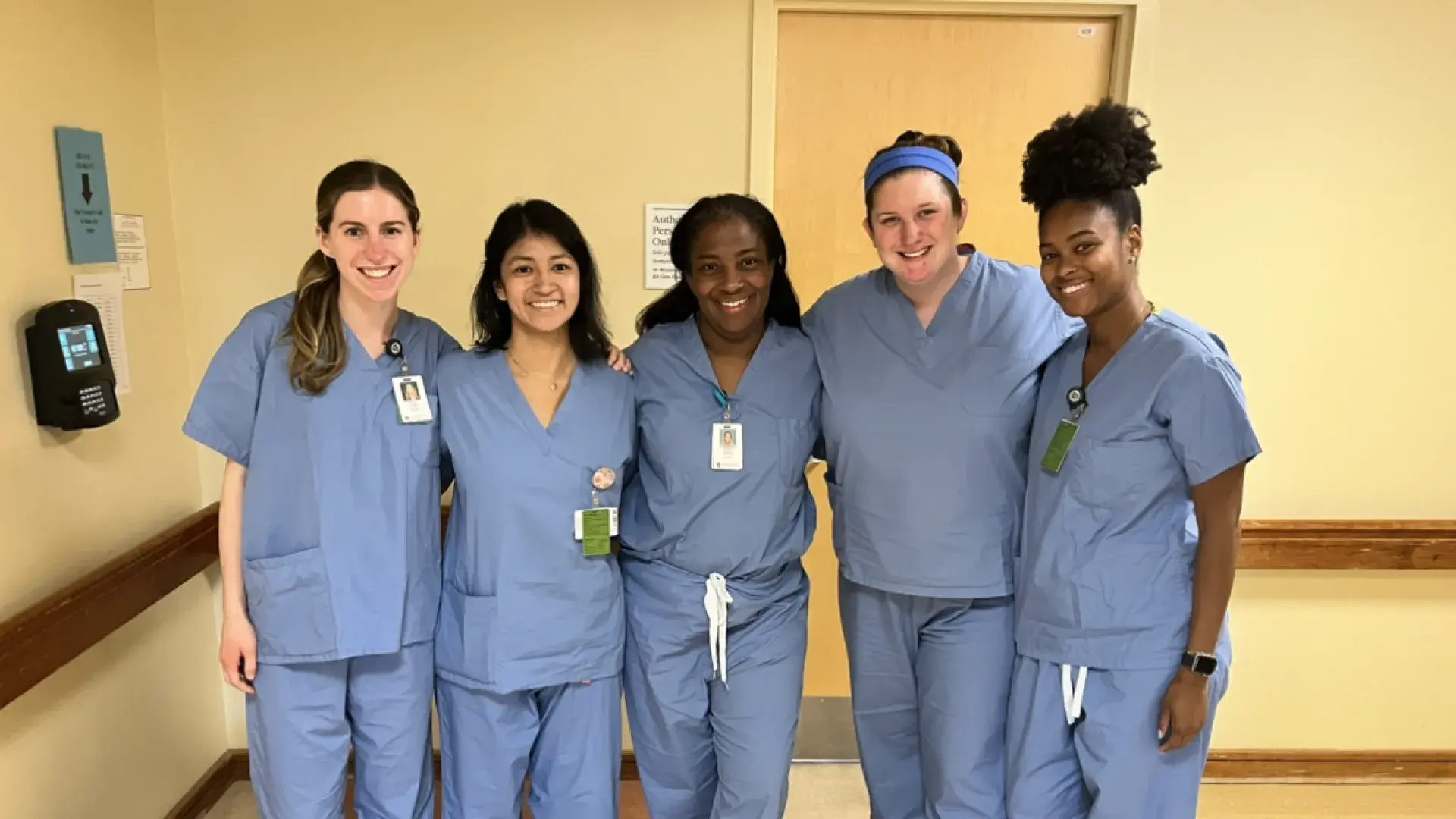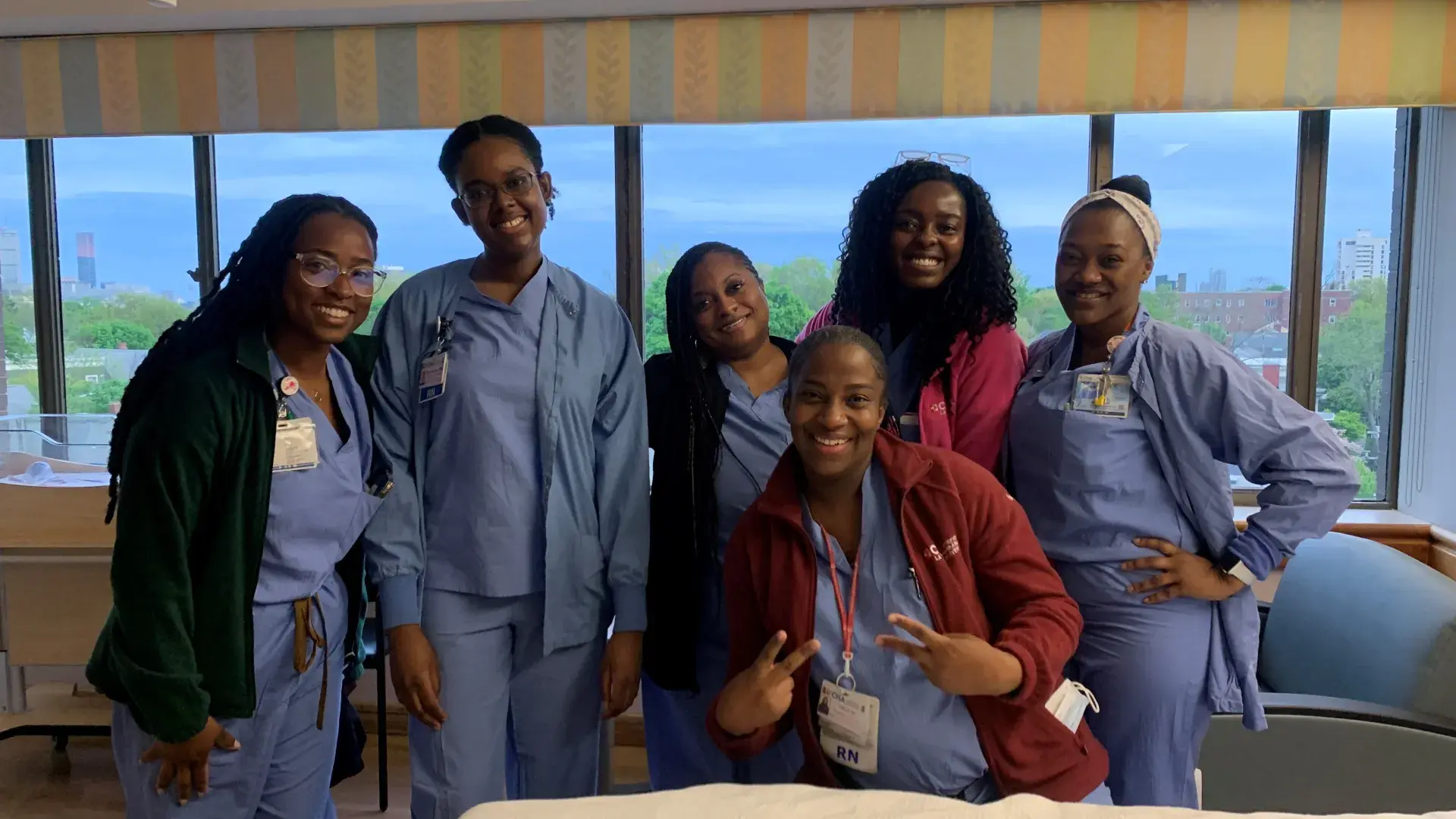
Experience working with midwives central to her efforts in integrating midwifery into health care sector
Massachusetts has the most comprehensive maternal health protections in the country, thanks in part to the efforts of MGH Institute alumna Tiffany Vassell, a registered nurse who spent the last six years lobbying lawmakers on the importance of increasing access to midwives and doula care.
“There's a ton of research out there that shows that mothers have better outcomes with midwives and that babies, Black babies specifically, are more likely to live when their moms receive care from midwives,” said Vassell, ABSN ’14. “So, it's important that we start to use midwives again and acknowledge what they bring to the table.”
Vassell, vice-president of the Bay State Birth Coalition, and Emily Anesta, president of the Bay State Birth Coalition, held countless meetings with nearly every lawmaker on Beacon Hill. That sustained effort, along with the support of approximately 30 organizations—including the American College of Nurse-Midwives (ACNM), National Association of Certified Professional Midwives, Center for Black Maternal Health and Reproductive Justice at Tufts University School of Medicine, Reproductive Equity Now, Our Bodies Ourselves, the ACLU, and Neighborhood Birth Center —help get the legislation signed into law by Governor Maura Healey during the most recent session.
Aimed at reducing the chances childbirth will turn deadly, the law:
- Allows insurance coverage of midwives
- Allows midwives to write prescriptions
- Creates state midwifery license for certified professional midwives
- Establishes a board of registration to oversee regulations and credentialing for certified professional midwives
“The Commonwealth went from being ranked somewhere in the bottom 20% to now being on our way to No. 1 in the country for midwife integration, which is proven to have huge benefits for maternal health,” said a beaming Vassell, ABSN ’14. “The time has come for midwives to play a larger role in delivering babies. This law does that.”
The path Vassell took in helping to get this legislation passed was circuitous because nursing is her second career. After graduating college with a sociology and education degree, Vassell was working in insurance and as a personal assistant to a radio station owner. But it was Vassell’s traumatic experience having her own baby that led to a new calling.
“There were just a ton of people in the delivery room, and I felt like I didn't have a say so over my body, and what was happening with my baby,” recalled Vassell. “At one point they wanted to give me a C-section, and I declined. I actually had a sister in the room that told me, ‘You don't know what you're talking about. You need to listen to the doctor.’ And I said ‘No, I know my body. I know I can do this. You just have to give me a chance.’ And I actually asked her to leave the room. The doctors agreed to let me go for a few more hours, and I did, and I had my baby vaginally and it only took me 15 minutes to push.
“I felt like I had to fight and really advocate for myself during that time. I didn't really have the experience of being tended to.”
That led Vassell to the MGH Institute.
“From that moment, I decided I wanted to be a nurse. I did my research. It was perfect. I felt like the stars aligned. The MGH Institute was in my city. It was an accelerated program, and I applied,” explained Vassell.
After graduating from the Institute’s ABSN program in 2014, she began her career as a maternity nurse, eventually working as a labor and delivery nurse at Cambridge Hospital. She eventually left bedside nursing to join the Neighborhood Birth Center, hoping to help the community and advocate for midwives.
“I’ve worked with midwives my whole career as a labor and delivery nurse. I just always loved the way they practice,” said Vassell, who is now pursuing her Master of Science - Leadership in Nursing Education degree at the IHP. “It’s just very holistic. When they’re with the patient, they’re spending time with them, they’re doing the maneuvers, it is really like a next level of care. And I just admired that. I feel like more folks should have access to that.”
Midwives can provide many services across the reproductive spectrum such as administer vaccines, perform medical abortions, deliver babies that are stillborn, provide menopause care and fertility planning. The word comes from Middle English: mid meaning "with" and wif meaning "woman.” Originally the word meant "with-woman" - a woman who is with another woman and assists her in giving birth.
The demand for midwives and at home births has only continued to increase since the COVID-19 pandemic, and the passage of this bill will allow for more people access to the service and care midwives offer.
“Midwifery has been around since the beginning of time,” noted Vassell, who is also a preceptor for the MGH Institute. “Reintegrating midwifery into our healthcare system is a powerful step. We are here because of midwives and the transformative care they provide. This moment reminds us of the true essence of midwifery—care that is deeply person-centered and focused on the whole individual. In a healthcare system that often feels driven by business rather than humanity, midwifery brings the focus back to people, their experiences, and their needs.”
With one monumental challenge accomplished and a successful nursing career underway, Vassell looks forward to finishing her graduate studies while forever grateful for her affiliation with the MGH Institute.
“The IHP truly laid a strong foundation for me, and I often reflect on the incredible professors who shaped my journey, like Dr. Suellen Breakey and Dr. Eleanor Pusey-Reid. Their guidance and the classes I took under their leadership left a lasting impact, setting a standard of excellence that continues to inspire me in my work,” said Vassell. “I sincerely hope I’m living up to the high standard the IHP has set. Choosing the IHP for my nursing degree was one of the best decisions I’ve made. I feel deeply connected to the institution and the values it instilled in me. It truly prepared me to be not only the best nurse I can be but also a strong advocate for my community.”
Do you have a story the Office of Strategic Communications should know about? If so, let us know.
